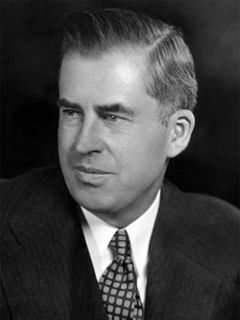A Quote by Thomas Hobbes
And whereas many men, by accident unevitable, become unable to maintain themselves by their labour; they ought not to be left to the Charity of private persons; but to be provided for, (as far-forth as the necessities of Nature require,) by the Lawes of the Common-wealth. For as it is Unchariablenesse in any man, to neglect the impotent; so it is in the Soveraign of a Common-wealth, to expose them to the hazard of such uncertain Charity.
Related Quotes
Nature has poured forth all things for the common use of all men. And God has ordained that all things should be produced that there might be food in common for all, and that the earth should be in the common possession of all. Nature created common rights, but usurpation has transformed them into private rights.
But if one Subject giveth Counsell to another, to do anything contrary to the Lawes, whether that Counsell proceed from evil intention, or from ignorance onely, it is punishable by the Common-wealth; because igorance of the Law, is no good excuse, where every man is bound to take notice of the Lawes to which he is subject.
Men pursue riches under the idea that their possession will set them at ease, and above the world. But the law of association often makes those who begin by loving gold as a servant finish by becoming themselves its slaves; and independence without wealth is at least as common as wealth without independence.
It is true that so far as wealth gives time for ideal ends and exercise to ideal energies, wealth is better than poverty and ought to be chosen. But wealth does this in only a portion of the actual cases. Elsewhere the desire to gain wealth and the fear to lose it are our chief breeders of cowardice and propagators of corruption. There must be thousands of conjunctures in which a wealth-bound man must be a slave, whilst a man for whom poverty has no terrors becomes a freeman.
Labour is the source of all wealth, the political economists assert. And it really is the source -- next to nature, which supplies it with the material that it converts into wealth. But it is even infinitely more than this. It is the prime basic condition for all human existence, and this to such an extent that, in a sense, we have to say that labour created man himself.
Charity is today a 'political charity.'. . . it means the transformation of a society structured to benefit a few who appropriate to themselves the value of the work of others. This transformation ought to be directed toward a radical change in the foundation of society, that is, the private ownership of the means of production.
The maxim that men are not to be praised before their death was invented by envy and too lightly adopted by philosophers. I, on the contrary, maintain that they ought to be praised in their lifetime if they merit it; but jealousy and calumny, roused against their virtue or their talent, labour to degrade them if any one ventures to bear testimony to them. It is unjust criticism that they should fear to hazard, not sincere praise.







































